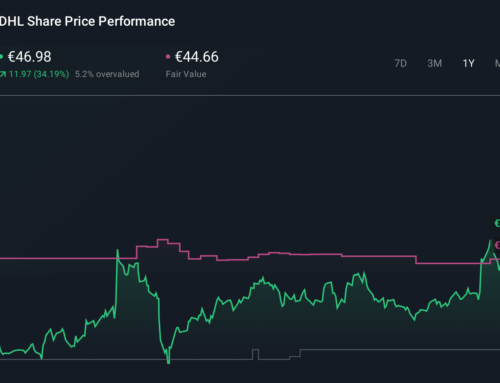Tong Wants Crackdown on Unlicensed Cannabis
April 25, 2025

EAST HARTFORD, CT — Attorney General William Tong joined East Hartford Mayor Connor S. Martin and Assistant Police Chief Josh Litwin on Wednesday to rally support for House Bill 7181, a proposal aimed at strengthening Connecticut’s cannabis, hemp, and tobacco enforcement laws.
“This isn’t a debate about cannabis or not,” Tong said at the East Hartford Public Safety Complex. “This is about public safety. This is about children. Legal cannabis is not a free-for-all. If you are unlicensed, if you sell untested, unregulated cannabis, if you sell to minors, you are breaking the law.”
The bill builds on the state’s existing cannabis regulations by expanding both civil and criminal enforcement powers. It would establish a statewide Cannabis and Hemp Enforcement Task Force within the Department of Consumer Protection, empowering the state to coordinate investigations, request local personnel, and take enforcement actions across municipal boundaries.
The bill also introduces steep civil penalties — $10,000 for landlords who knowingly lease to illegal cannabis operations and $30,000 for unlicensed vendors selling unregulated products. It authorizes courts to immediately seize proceeds and merchandise tied to illegal activity and creates new criminal penalties, including Class E felonies for licensed businesses or employees who sell to anyone under 21 or distribute synthetic cannabinoids.
“These changes make it worthwhile for towns to take action,” Tong said. “We want to make sure local police and governments have both the authority and the incentive to protect their communities.”
Under current law, civil penalty revenue is split between the state and municipalities. The bill would allow towns to retain 100% of civil fines collected through enforcement — a shift Tong said is key to motivating local action.
Martin said the legislation balances enforcement with support for legitimate business.
“I am happy to support legislation that preserves quality of life for East Hartford residents, and that includes enforcing legalized cannabis regulations, while also supporting local businesses that follow legal processes and procedures,” he said.
Tong and Litwin detailed what enforcement officers are seeing on the ground: unlicensed cannabis products marketed to children, including high-THC edibles covered in glitter or packaged to resemble snacks, plus synthetic substances sold with no oversight and other illicit activity.
“This legislation would provide the necessary tools to uphold our mission — ensuring our community remains safe and our laws are enforced justly,” said Litwin.
While Connecticut law allows adults 21 and over to legally purchase and consume cannabis, the products must be sold through licensed dispensaries and meet strict testing and labeling requirements. Still, Tong said unlicensed sales continue to flourish in smoke shops and convenience stores.
State law limits THC content to 5 milligrams per serving and 100 milligrams per package, but enforcement teams have found products far exceeding those limits—and in some cases, have uncovered evidence of more serious illegal activity, Tong said.
“We’ve found hidden compartments, ledgers tucked into ceiling tiles,” Tong said. “People are going to great lengths, not just to sell illegal products openly, but to conceal even more dangerous substances. It’s like something out of a movie.”
Legislators say the bill is essential for maintaining the integrity of the state’s regulated cannabis market.
“The goal of legalizing adult cannabis use was to establish a safe, regulated marketplace that protects consumers and supports legitimate businesses,” said House Majority Leader Jason Rojas, D-East Hartford. “Those who choose to operate outside of this legal framework undermine these efforts and should be prosecuted to the fullest extent of the law.”
State Sen. Saud Anwar, D-South Windsor, said illegal cannabis sales pose a direct threat to public health.
“If people are going to use cannabis, our state provides safely grown and cultivated products that have been tested and verified, as compared to synthetic, unsafe, or altered substances on the street,” he said.
But not all stakeholders are on board.
At a March 19 public hearing, cannabis advocacy groups, small business owners, and legal experts expressed concern that HB 7181 could criminalize low-level or accidental violations and make an already complex regulatory landscape even harder to navigate.
“Any criminal penalty undermines the original rationale for legalization. Furthermore, it serves no purpose,” said criminal defense attorney Aaron Romano in written testimony. “I urge the General Assembly to simplify the laws surrounding legalization so that the ordinary citizen understands its parameters. This bill will simply result in additional innocent people — truly ignorant of the law — being arrested.”
Municipal leaders also raised financial concerns. While towns would retain all civil penalties under the bill, the cost of staffing the new state task force may outweigh the benefits.
“CCM appreciates Section 7, which ensures that all damages recovered from an illicit supplier go to the municipality rather than being split with the state,” wrote Zachary McKeown, advocacy manager for the Connecticut Conference of Municipalities. “However, we are concerned that these funds may not fully offset the costs of assigning officers to the task force, depending on its size and scope. While we support interagency collaboration, the financial burden on towns remains a major obstacle.”
RELATED
First-Ever CT Cannabis Forum Held in Hartford
For years, cannabis advocates would rally outside the state Capitol each April. This year, they were invited in to participate in a conversation about how Connecticut could improve its regulations and better support patients who rely on the plant’s dried flower for pain relief and anxiety support.
O’Dea Pushes For Crackdown On Impaired Driving On Connecticut’s Highways
HARTFORD, CT – State Rep. Tom O’Dea, R-New Canaan, is urging lawmakers to crack down on smoking and drinking on Connecticut highways, calling for stricter enforcement of impaired driving laws during a public hearing Wednesday on Senate Bill 1375, a comprehensive road safety bill.
Hemp Farmers Caught In Connecticut’s Cannabis Crossfire
HARTFORD, CT – In 2019, Gov. Ned Lamont hailed hemp farming in the state as the next big driver of growth in the state’s agricultural sector. But five years later, according to the state’s data, the number of licensed Connecticut hemp producers has dropped by two-thirds.
Interview | Brandon McGee, Connecticut Social Equity Council
After the resignation of former Executive Director Ginne-Rae Clay in 2024, the Connecticut Social Equity Council hit the reset button with the appointment of former state representative Brandon McGee as the agency’s new leader. McGee started his work as executive director by creating the council’s first strategic plan for how it would move forward and…
Interview | Lou Rinaldi, Medical Marijuana Patient Advocate
As adult-use recreational cannabis celebrates its second anniversary of legalization in Connecticut, advocates for medical marijuana patients say they’re being left behind. Brian Scott-Smith spoke with Lou Rinaldi, a medical marijuana patient and advocate for other people like him to find out more.
Interview | Rino Ferrarese Talks Connecticut Cannabis
Brian Scott-Smith spoke with Rino Ferrarese, President of Affinity Grow in Portland, about the cannabis industry and Connecticut’s first two years allowing the sale of recreational marijuana.
Connecticut’s New Laws Taking Effect Jan. 1
More than a dozen new laws will take effect Jan. 1 in Connecticut, including changes to absentee ballots, mandatory paid sick leave, and expanded protections for home health care workers.
Search
RECENT PRESS RELEASES
Related Post











